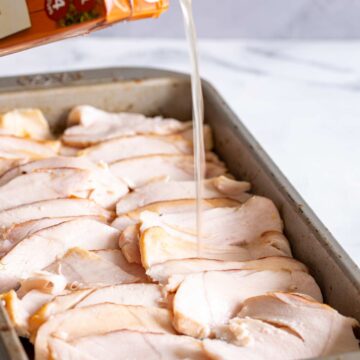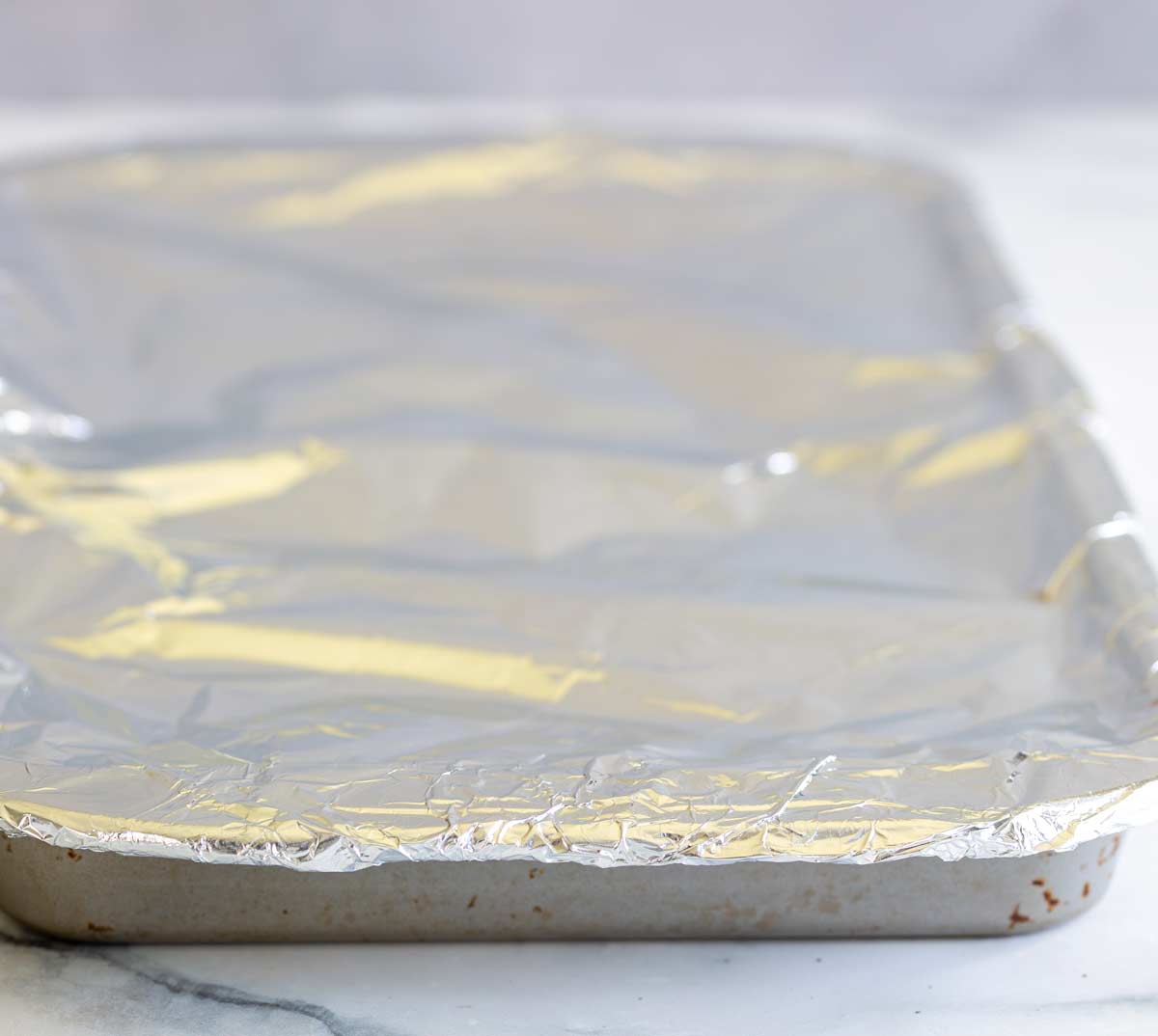Thanksgiving and Christmas are about family, friends, and food. And as the centerpiece of many holiday feasts, the turkey is a crucial element of the meal.
However, cooking a turkey can be challenging for even the most experienced home cooks. I understand how disappointing and frustrating it is when you’ve worked so hard to prepare a wonderful holiday meal—I’ve overcooked a few in my time!
Overcooking a turkey can result in tough, dry meat that is difficult to enjoy. Additionally, overcooked turkey can be less flavorful, as the heat can cause the natural juices to evaporate. I want to share with you today my best tip for preventing an overcooked turkey and enjoying a wonderful meal with your loved ones.
When cooking a holiday feast, broth or stock is your best friend!! That and a bit of butter!
If you can find it, turkey broth is the best option, followed by chicken and vegetable broth/stock.
You can make some without a carton by using a base of chicken or turkey bouillon, such as “Better than Bouillon.” “.
Have you ever experienced the disappointment of a tough, chewy turkey? It’s a common problem, but understanding the causes and solutions can help you achieve a perfectly tender and flavorful bird every time.
Common Causes of Chewy Turkey:
- Overcooking: This is the most frequent culprit. Turkey is a lean meat, and overcooking quickly dries it out, resulting in a rubbery texture.
- Improper Thawing: Thawing a frozen turkey incorrectly, such as at room temperature, can lead to uneven cooking and tough spots.
- Insufficient Basting: Basting helps keep the turkey moist during cooking, but neglecting this step can contribute to dryness.
- Incorrect Brining: While brining can add moisture and flavor, using too much salt or brining for too long can make the turkey tough.
- Cooking Method: Certain cooking methods, like roasting at high temperatures, can dry out the turkey more quickly.
Solutions for a Tender and Flavorful Turkey:
- Monitor Temperature Carefully: Use a meat thermometer to ensure the internal temperature reaches 165°F (74°C) in the thickest part of the thigh. Avoid overcooking.
- Thaw Properly: Thaw your turkey in the refrigerator for several days, allowing 24 hours for every 4-5 pounds of turkey.
- Baste Regularly: Baste the turkey every 30 minutes or so with melted butter, pan drippings, or a flavorful liquid.
- Brine Wisely: Use a balanced brine recipe and follow the recommended brining time based on the size of your turkey.
- Choose a Gentle Cooking Method: Consider methods like roasting at a lower temperature, slow cooking, or brining and roasting.
Additional Tips for a Delicious Turkey:
- Seasoning: Season the turkey generously with salt, pepper, and your favorite herbs and spices.
- Resting: Allow the turkey to rest for at least 15 minutes before carving to allow the juices to redistribute, resulting in a more tender bird.
- Carving Technique: Slice the turkey against the grain for the most tender bites.
- Flavorful Additions: Consider adding vegetables, aromatics, or fruit to the roasting pan for extra flavor.
Addressing Specific Concerns from the Forums:
- High Roasting Temperature: Starting with a high temperature (450°F) and then reducing it to 350°F can be effective for whole birds, but it’s important to monitor the temperature carefully and adjust cooking times for smaller cuts like turkey breasts.
- Brining and Slicing: Brining and slicing across the grain can significantly improve the texture and tenderness of turkey.
- Bone-in vs. Boneless: Bone-in turkey tends to be juicier than boneless, but boneless is easier to carve. Consider your preference and cooking method.
- Turkey Age: Older turkeys can be tougher, so choose a younger bird for the best results.
- Cooking Method: Experiment with different methods like braising or slow cooking for extra tenderness.
By understanding the causes of tough turkey and implementing these solutions you can confidently prepare a delicious and tender turkey that will impress your family and friends. Remember, practice makes perfect, so don’t be discouraged if your first attempt isn’t flawless. Keep experimenting and learning and you’ll soon become a master of the Thanksgiving turkey!
And if all else fails
Have another drink and eat all your delicious sides. I promise that it is just a hiccup and youll laugh about it one day.
If you try this recipe, please come back and comment. You can also tag me on social media.
Any questions about the recipe? Use the comments section below.

Using broth to moisten the turkey
First things first: if you drink, pour a glass of wine and keep in mind that the holidays are all about family and friends. This especially applies if your turkey breast meat is overcooked. So take some deep breaths and move on. You cant go back and cook it less, but you can make it taste good.
Slice the turkey breast and lay it into a roasting dish. Drizzle over 2 tablespoons of melted butter, and then take your broth/stock and pour it over the slices.
The amount of broth required varies based on the size and degree of overcooking of your turkey, but I usually use about 1 cup per breast, or 2 cups for the entire bird.
Cover the dish with aluminum foil and seal the edges well. Then place in the oven at 200ºF/90ºC for 15 minutes. The turkey will soak up the broth/stock.
Next, pull the meat from your turkey legs. Usually, if the breast is overcooked, the legs are perfectly cooked!.
Transfer the leg meat to a separate dish, cover with ¼ cup of broth, seal the dish the same way, and keep warm in the oven.

Place the turkey slices on a serving platter and place the leg meat in one corner to serve. To thin the hot gravy, take ¼ cup of the gravy and stir in 2 tablespoons of hot broth. Drizzle the gravy over the turkey slices.
Why is my turkey tough and chewy?
FAQ
Why is my turkey so rubbery?
What to do with rubbery turkey?
Does turkey get tougher the longer you cook it?
